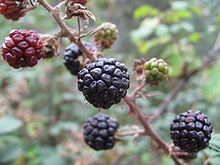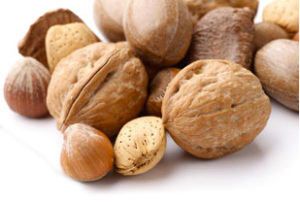 A recent study looked at 2 specific antioxidant levels in a variety of mushroom species. Mushrooms are an excellent source of nutrients, such as riboflavin and other B vitamins, selenium, copper, potassium, dietary fiber, as well as high levels of antioxidants ergothioneine (ERGO) and glutathione (GSH). The study found the highest levels of these antioxidants in yellow oyster and porcini mushrooms.
A recent study looked at 2 specific antioxidant levels in a variety of mushroom species. Mushrooms are an excellent source of nutrients, such as riboflavin and other B vitamins, selenium, copper, potassium, dietary fiber, as well as high levels of antioxidants ergothioneine (ERGO) and glutathione (GSH). The study found the highest levels of these antioxidants in yellow oyster and porcini mushrooms.
Ergothioneine (ERGO), which is found throughout the human body, is a critical antioxidant that acts with other antioxidants to protect against oxidative stress in the mitochondria (in our cells). What foods are good sources of ERGO? Mushrooms have the highest levels, but other foods with high ERGO content include red beans, black beans, kidney beans, oat bran, liver, and king crab.
Glutathione (GSH) is produced by the body and found in every cell - thus the major antioxidant within cells. It also helps the liver remove chemicals (detoxification) of a wide range of toxins, drugs, pollutants, and carcinogens, and maintenance of immune functioning. Low GSH levels are associated with increased risks for cancer, cardiovascular diseases, arthritis and diabetes. So you want to maintain optimal tissue levels of GSH (through dietary intake) because it is so critical for maintaining health. What foods are good sources of GSH? Mushrooms, and many fresh (raw) fruits and vegetables, including asparagus, avocados, potatoes, spinach, squash, tomatoes. Also fresh, uncooked meats and dairy products (raw milk) and eggs. From Science Daily:
Mushrooms are full of antioxidants that may have antiaging potential
Mushrooms may contain unusually high amounts of two antioxidants that some scientists suggest could help fight aging and bolster health, according to a team of Penn State researchers. In a study, researchers found that mushrooms have high amounts of the ergothioneine and glutathione, both important antioxidants, said Robert Beelman, professor emeritus of food science and director of the Penn State Center for Plant and Mushroom Products for Health. He added that the researchers also found that the amounts the two compounds varied greatly between mushroom species.
Beelman said that when the body uses food to produce energy, it also causes oxidative stress because some free radicals are produced. Free radicals are oxygen atoms with unpaired electrons that cause damage to cells, proteins and even DNA as these highly reactive atoms travel through the body seeking to pair up with other electrons. Replenishing antioxidants in the body, then, may help protect against this oxidative stress.
According to the researchers, who report their findings in a recent issue of Food Chemistry, the amounts of ergothioneine and glutathione in mushrooms vary by species with the porcini species, a wild variety, containing the highest amount of the two compounds among the 13 species tested. The more common mushroom types, like the white button, had less of the antioxidants, but had higher amounts than most other foods, Beelman said....Mushrooms that are high in glutathione are also high in ergothioneine, for example. Cooking mushrooms does not seem to significantly affect the compounds, Beelman said.
"It's preliminary, but you can see that countries that have more ergothioneine in their diets, countries like France and Italy, also have lower incidents of neurodegenerative diseases, while people in countries like the United States, which has low amounts of ergothioneine in the diet, have a higher probability of diseases like Parkinson's Disease and Alzheimer's," said Beelman. "Now, whether that's just a correlation or causative, we don't know." [Original study.]

 It seems that a lot has been written about the health benefits of some berries, such as blueberries, while other berries have been neglected. This study focused on red raspberries, black raspberries, and blackberries. While the study was done in Poland, it was pointed out that these berries are also commonly grown in the USA. Red raspberry, black raspberry, and blackberry fruits are abundant in dietary phytochemicals such as flavonols, phenolic acids, ellagitannins, vitamins C and E, folic acid, and β-sitosterol. Many of these bioactive compounds exhibit antioxidant activity. Anthocyanins and other phenolic compounds such as ellagitannins and ellagic acid, which distinguish raspberry from other berries, occur in high levels and are mainly responsible for their broad beneficial health properties (including anti-inflammatory, antimicrobial, and antiviral activities).
It seems that a lot has been written about the health benefits of some berries, such as blueberries, while other berries have been neglected. This study focused on red raspberries, black raspberries, and blackberries. While the study was done in Poland, it was pointed out that these berries are also commonly grown in the USA. Red raspberry, black raspberry, and blackberry fruits are abundant in dietary phytochemicals such as flavonols, phenolic acids, ellagitannins, vitamins C and E, folic acid, and β-sitosterol. Many of these bioactive compounds exhibit antioxidant activity. Anthocyanins and other phenolic compounds such as ellagitannins and ellagic acid, which distinguish raspberry from other berries, occur in high levels and are mainly responsible for their broad beneficial health properties (including anti-inflammatory, antimicrobial, and antiviral activities).
 To celebrate National Nut Day, two articles about health benefits of nuts. From Medical Daily:
To celebrate National Nut Day, two articles about health benefits of nuts. From Medical Daily: